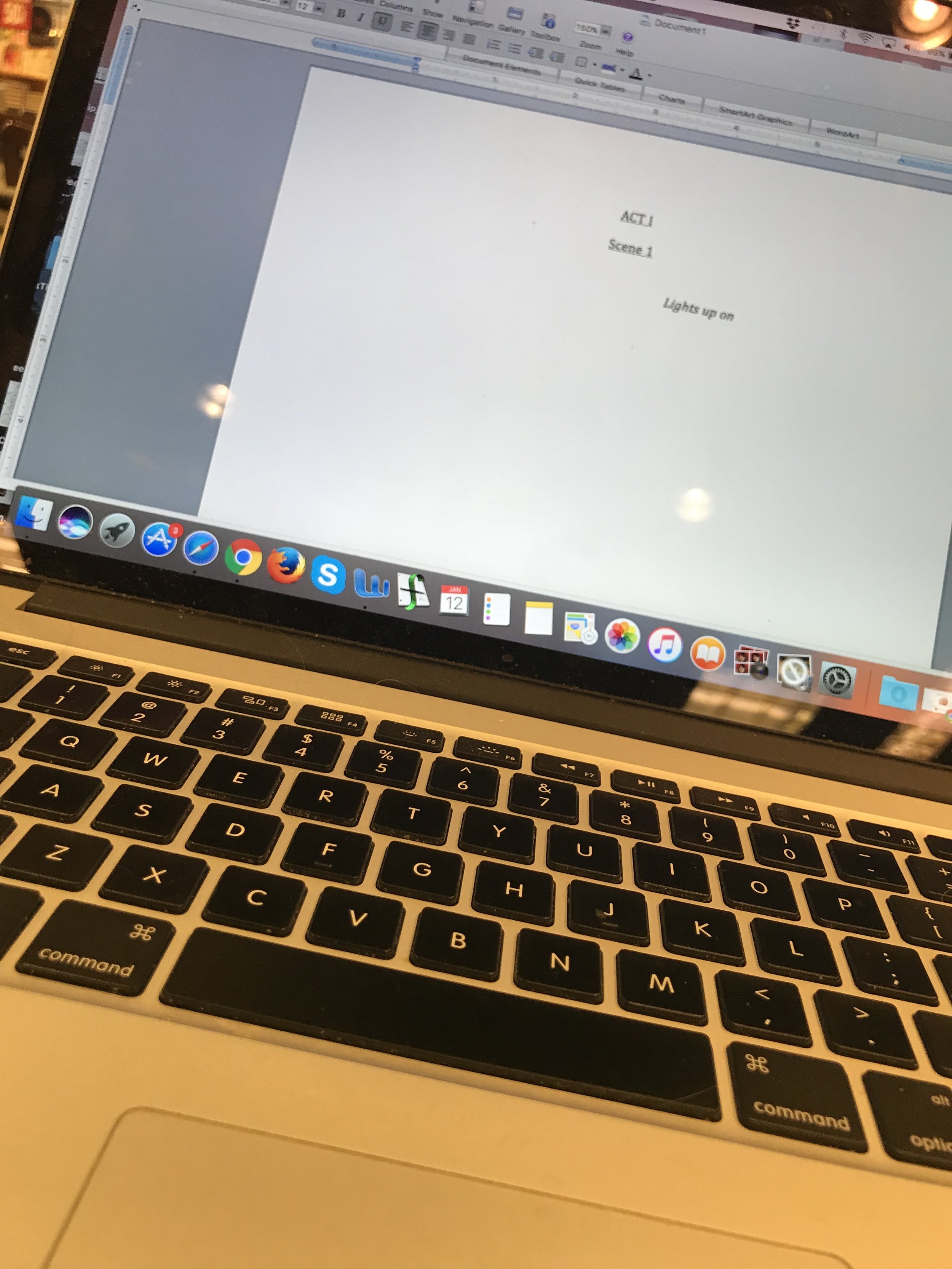Yearly Annual Playwriting Year-in-Review Wrap-Up Rundown
At this point in the calendar a lot of my playwriting colleagues crunch numbers from the past year, quantifying their labor and accomplishments as writers. I always look forward to these annual posts as a welcome opportunity for self-loathing. But this year it occurred to me that I should try it myself. Because 60% of success is being good with numbers (the other half is perserverance) (and the rest is knowing how to spell stuff like perserverernce).
So, without further ado: my playwriting numbers from 2017!
Number of pages written: 744 (Technically just one page that I rewrote 743 times, but it's really starting to come along.)
Total number of words I wrote in 2017: 428,384
Number of these words that were in furious single-spaced multipage screeds sent to theaters who elected not to produce my plays: 107,166
Total number of submissions: 113
Total number of acceptances: 0
Total number of debilitating self-doubts: last count, more than 6
Number of times I texted to my friends "We should start our own theater company:" 21
Number of theater companies started: 0
Number of times I invited myself to coffee with a literary manager: 12
Number of times a literary manager agreed: 7
Number of times I didn't spill coffee on the literary manager: 5
Number of literary managers who didn't take me up on the invitation but then I followed them from their offices and just had coffee near them: 3
Number of literary managers who did not file restraining orders against me: 11
Total spent on submission fees: $115
Total spent on birthday gifts for my parents: $7
Number of hours, on average, set aside weekly for writing: 26
Number of those hours spent actually writing instead of reading about Steve Bannon or Anthony Scaramucci or other people that in five years I won't even remember who they are: 1.5
Number of very encouraging, complimentary personal rejection notes received from theaters: 3
Number of those that were sent to me by mistake but were actually intended for other playwrights' submissions: 2 (btw congratulations, Eric Wapstler and Donna Pfortmueller, you're doing some very impressive work)
Number of "likes" I clicked for online pleas for gender, racial and cultural parity in the theater: 1006
Percentage of characters I wrote this year who aren't straight white affluent males: 11 (way up from 2016!!!)
Time spent arguing in online discussion threads about whether playwrights should use stage directions, pay submission fees, write comedy or allow second acts to be longer than first acts: 208 hours
Time spent with my children: 207 hours
Number of times my parents casually mentioned that y'know Jenny who used to ride your school bus is a pharmacist now and I bet she makes a really nice living: 14
Number of years spent emerging: 27

